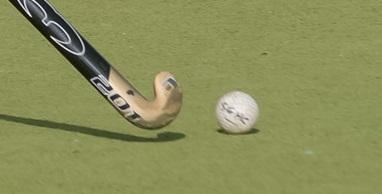
Published on: 30/05/19
Hockey player Alex Danson MBE describes what happened in the months after hitting her head.

Published on: 30/05/19
“Head injuries are serious, I’ve learnt the hard way and it’s the toughest journey I’ve had... stay positive, believe and have your team around you.”
Alex Danson, Olympic hockey Gold and Bronze Medalist and England Captain, has shared with the BBC the effect that hitting her head on a concrete wall has had on her life.
Eight months ago Alex was on holiday with her now fiancé Alex when she laughed and her head hit the wall behind her. Only weeks before she had captained England at a home World Cup.
That night Alex woke every hour but tried to carry on the holiday as normal. Speaking about her return home Alex said: “I had terrible headaches, light sensitivity, noise. I came back and I was in bed in a dark room for a month."
As the weeks went on Alex continued to suffer and on an away day with her hockey team mates she lost the ability to speak and went to hospital following the session.
Alex left hospital "sometime later" but the effects continued and Alex found the car journey home with bumps "horrendous" and said: "That is when the hardest part of this began. The realisation that head injuries can take time. You have to be aware of that.
"The next few months were really challenging. I was in bed 24 hours a day. I could hardly walk to the bathroom.
"I couldn't bear light, sound, touch, anything. It was almost like my sensory dials had been whacked up. Even holding a conversation, I'd have to talk very slowly.
"I've improved hugely and headaches are my predominant problem. Light is still quite bright and noise can make me feel unwell."
Alex is getting better but speaking about the need for support she said: "If you have a head injury there is one person that physically goes through it, but anyone you speak to who's had a head injury would say they're not the only person whose life it affects."
Alex and her partner are now engaged with the wedding planned for September. Alex has also returned to GB Hockey's training base once a week to spend time with her team-mates.
She wrote teammates a letter help them understand her situation.
She told the BBC: "I said things like: 'Short conversations for me are good. Flood me with positivity. Speak to me about positive things because negative things at the moment for whatever reason, my brain can't process. I can feel your hugs, I can converse but the reality is I have an invisible illness that means I'm not able to live to my capacity.'"
Alex’s call to others is to be honest about how they are feeling and what they are going through: "I underreported and I learned the hard way," she said.
She continued: "I'm doing everything in my power to be positive and behave as though I'm going to get better. I'm not playing my sport, I'm nowhere near physically able to do that yet.
"I'm still the same person. I'm still incredibly competitive. I've had the most amazing career. I never thought it would be taken away so abruptly. I still hope to return.
"I'm told I'll make a full recovery and I absolutely believe that."
Publications for parents of children and young people who have had a brain injury can be found here.
Our latest resource is a booklet and pocket card on Concussion in children and young people: a guide for families, teachers and sports coaches.